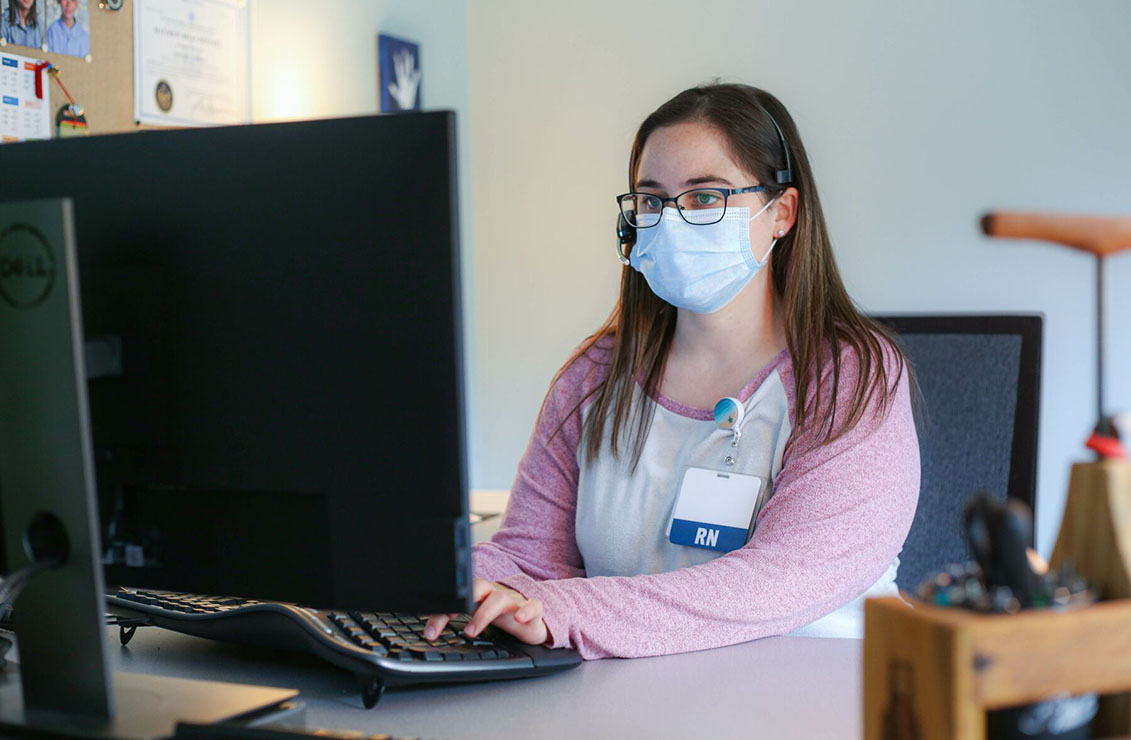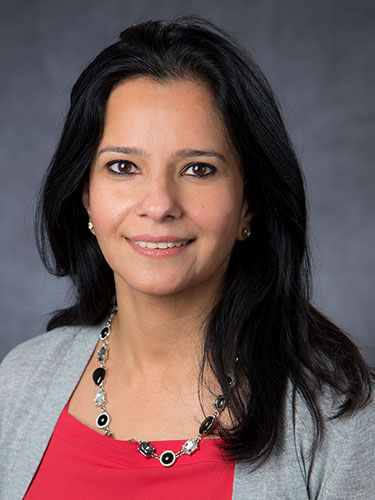Research Team to Study Bringing Remote Diabetes Care to Rural Maine

MaineHealth Care at Home nurse Amanda Belanger, RN, uses a computer to video chat with a patient remotely.
In Maine, only 21 endocrinologists are available to serve the 114,000 adults who live with diabetes statewide. As a result, endocrinologists have the capacity to see just 10 percent of the total diabetes population. The vast majority of patients with diabetes therefore receive care through primary care physicians, who would benefit from guidance and advice for supporting and treating patients with devices and on complex treatment regimens.
Sparked by a connection made by MaineHealth CIO Dan Nigrin, MD, clinical leaders from Maine Medical Partners Endocrinology & Diabetes Center and MaineHealth Innovation collaborated on a grant to address this need in rural Maine. In December 2021, Kiran Gujral, MD and Irwin Brodsky, MD received a $2.2M from The Leona M. and Harry B. Helmsley Charitable Trust to study how making state-of-the-art diabetes management accessible impacts the care of people with diabetes who live in rural regions with a scarcity of endocrinology specialists.
Principal investigators Drs. Brodsky and Gujral and the team outlined a novel clinical intervention using DreaMed Diabetes, an AI technology, for optimizing the care of insulin-requiring diabetic patients in rural communities. The grant, which is for three years, will be used to create The MaineHealth Virtual Diabetes Clinic (MVDC), a collaborative partnership among subspecialists in Endocrinology and Diabetes and primary care clinicians that employs state-of-the-art diabetes management technology. The goal of the MVDC is to establish a novel collaborative clinical model for managing insulin therapy in people with diabetes living in rural communities and to study how continuous glucose monitoring technology and an artificial intelligence driven decision tool (DreaMed Advisor®) changes clinically relevant diabetes outcomes.

Kiran Gujral, MD

Irwin Brodsky, MD
“There are many studies that show the benefit of continuous glucose monitoring data to support care, but few have been done with insulin pump patients and endocrinology specialists. This will be one of the first opportunities to explore potential benefits in primary care, where the vast majority of patients with diabetes receive care.”
– Irwin Brodsky, MD

